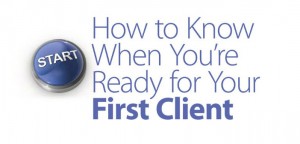Brian Clark is the powerful, well-known CEO of multi-million dollar Copyblogger Media. So you might be surprised by his raw honesty about his own hard-lessons learned and how you can do what he does.
A self-described “recovery attorney,” Brian (like a lot of us) sampled his share of corporate employment before deciding it would never work for him. He went the opposite route and dove into self-employment, launching multiple businesses and online projects that left him overworked and stressed.
As Brian says, “I had been working myself to death building businesses I wasn’t really interested in.”
It took a near-death experience that started with a snowboarding accident and ended with brain surgery to help him wake up to what was going wrong in his life.
From there, Brian got over doing what everybody else expected and focused on what made him happy.
The answer? Writing, online, as part of a global conversation. Copyblogger was officially launched in January of 2006 and now boasts over 170,000 subscribers, plus countless awards. Well-known Internet blog-indexer Technorati calls Copyblogger one of the most popular blogs in the world.
But the biggest payoff of all, as you’ll read in the interview below, is that for Brian, it’s his shot at going after what he really enjoys and living the life he wants to live.
AWAI-trained copywriter Guillermo Rubio steps in this month to interview Brian. Enjoy the following account of Brian’s self-taught lessons in writing for profit.
***
Copyblogger is a big deal. What is it? How did it start?
It’s kind of interesting because Copyblogger was basically founded as a blog back in 2006 and it’s evolved into a multi-million dollar software company. But it was always the content that we shared, the education that we shared with people that really built the business.
Fundamentally, what we teach are direct response copywriting techniques like the ones you hear from some of the greats in the industry, like Clayton Makepeace and all these other people that are just legendary direct response copywriters. Of course, I learned from all these people over the years. I learned from AWAI way back at the very beginning when I got started.
But what I did was take those principles and showed how you could apply them. Not just to sales letters and pure marketing materials, but also to content so that your content gets the kind of attention that you need and it actually starts to act as a function of marketing itself. That’s why we’ve got the term “content marketing” now where you’re getting people to know, like, and trust you through the content. By the time it comes to making them an offer, they’re already 85% of the way there, right? And that’s some of the stuff that we used to have to do all in one shot with a sales page or direct mail piece, or what have you.
So it’s a different way of thinking about it, but it’s the same fundamental principles applied to online content and kind of building trust over time. Because we’ve got an environment of cynicism and distrust and it’s a way to actually accomplish your business goals while having people love your marketing, instead of trying to tune it out.
But it’s really — it’s what we’ve always been doing with direct response; it’s just a new context of thinking about it.
So along the same lines of producing that engaging content that gets picked up, could you give one or two tips on how to create that kind of content or what constitutes that kind of content? Is there a structure to it?
When it comes to a pure sales copywriting approach, we all know how important that headline is, right? Your promotion lives or dies right there. If you lose people at the headline you’re done, because they’re not going to continue reading. If it’s another format such as video, if the title doesn’t entice them to watch, you’ve lost the battle. So with content much as with a sales page or some other kind of direct promotion, you’ve really got to grab people with your title.
AWAI has a great formula for sales headlines — the four U’s — and I think they’re generally applicable. But for content, I like to keep it simple with kind of a two-part structure: meaning plus fascination. The meaning is the substance of your content. It’s the reason why people are coming to you to learn something new, satisfy desires, and solve a problem. The fascination is where a copywriter recognizes the hook, right? It’s like John Carlton’s “One-Legged Golfer” headline, which is a classic. It’s so fascinating that you’re like “Wait, I have to read that.” And you’re going for the same thing with your content. It doesn’t have to always be that extravagant; it just has to be something interesting.
I like to start with my headlines like a lot of copywriters do, and try out various ones before I commit, because the headline tells what the content has to deliver. It’s a promise, right? As any headline is, it’s a promise of what you’re going to deliver to the reader. So it helps you make very meaningful and very fascinating content as well. And that’s just one tip, but headlines really are, just as with everything else. You become a great headline writer, you’re on your way to becoming a great copywriter.
Cool. And now let’s cover how you got started as a copywriter, or with Copyblogger, or even into the world of copywriting?
It’s interesting because I was never … I can count one on hand the number of clients I’ve had, because I was never a freelance copywriter. I never had an agency or anything like that; I taught myself copywriting for my own business. I started publishing content online in the late ‘90s, and I can tell you what, I was completely clueless. I had no idea what I was doing. I was a psychology major in college, went to law school, practiced law, and stopped doing that.
So I had never taken a marketing class; never read a marketing book. But sooner or later, somehow I figured out what I was doing online was really a form of direct marketing, and that was an epiphany for me. When you’re trying to go directly to people out there in the world, which is what the Internet allows us to do, that’s exactly what you’re doing. So once I kind of clued in on that, I started studying and reading everything I could. That made me realize what I needed to learn was copywriting.
So I threw myself into that study, and this was — wow … 13, 14 years ago now. And the first course I ever bought was AWAI’s Accelerated Program from Six-Figure Copywriting. It was just a whole new world to me; it was just fascinating. It took me a while before it really started to stick, but once it did, every business I started from that point on (there’ve been seven of them), they were all successful. My one failure was during that early period before I figured out how to do marketing and how to write copy.
Obviously you do a lot of writing through Copyblogger; do you have any writing rituals?
Oh, I’m just as crazy as any other writer. Every time I ask someone “Hey, so how do you get it done?” Everyone’s like, “Oh, you don’t want to know.” We’re all a mess of our own processes. I am envious of anyone who can just sit down and crank out copy. But usually for me, my process involves a lot of thinking.
My best ideas usually spring up out of nowhere by reading or paying attention to something else such as a movie. You know, letting your brain rest. It’s still working back there in the background. But the answer often comes to you through other media, or just paying attention to something else, because you see the intersection and that’s how you come up with the ideas for these hooks or the fascinating elements or that great analogy.
I found that I have to think it through quite a bit, let it rest, it comes to me, and I sit down and write. And at that point, it all just comes out. It’s almost like you’re one of those superhuman people who can just sit down and start typing. But really there’s a lot of background. At least for me.
I totally agree. It’s kind of the same way for a lot of other people I’ve interviewed where the hard part and the majority of the work is done through the research and reading, and thinking about what to say as opposed to how you’re going to say it.
Exactly.
So what’s one copywriting tip that you can share that’s improved your skills?
Just never ever close yourself off to learning from someone who’s good at what they do. I mentioned Clayton Makepeace before. What he does and what I do is very different in many ways. But I view it as fundamentally similar; it’s just our contexts are different. He writes for different industries and I’ve learned everything that man has been willing to throw at me, even though in application what I do looks very different. People don’t see things as the same, they’re always talking about how things are different, and I think that hurts people.
I’ve never closed off learning from anyone. Even people whose marketing tactics or ethics I don’t necessarily admire, I still watch what they do. I’m like “Well, I wouldn’t apply it that way, but fundamentally there’s nothing wrong with this approach if it’s done in a different context.”
So, my best advice is to learn from everyone, pay attention, and ask why things are working. Don’t just grab swipe files and copy people. Understand why it’s working and then make it your own. And that’s how you really learn to succeed.
Okay. And as far as using content marketing for a copywriter to actually land clients and that kind of stuff, are there any tips you can give on how to use that kind of marketing to get clients?
Absolutely. The best advice I can give is this: you’re not writing for other writers; don’t do that. It’s interesting, because Copyblogger started off by providing writing advice and we still do because other writers, content creators, marketers — they’re our target audience. If you’re a writer looking to be hired, those people are not your target audience, and that is a mistake I see done over and over.
I see freelance writers copying our style, and all they’re getting is their fellow writers over there telling them how great they are. That doesn’t pay the bills. You need to address, you need to pick a market. You need to not be just Joe Copywriter for hire. You need to be a marketing specialist for the real estate industry, or blue widget industry — whatever, and commit to that.
And then solve those people’s problems. What are they trying to do? Trying to make more money? Or trying to solve problems, have more freedom, get more time away from their businesses? All that kind of stuff, basic benefits, hopes, dreams. All the stuff we learn when we learn copywriting, sometimes copywriters throw it right out the window when it comes to building their own business. Find out who you’re talking to. Make a decision about who that is. What are their problems, what are their hopes, dreams, desires, and aspirations? Speak to that; that’s what gets you hired.
Excellent advice. And along the same lines of just succeeding as a copywriter in general, what’s one good tip you could give a copywriter that they need to succeed?
I think the hardest part for a writer is essentially the creative function. As I mentioned earlier, creative people can have all sorts of crazy work habits in order to get great work done, right?
Right.
And yet at the same time, a freelance business all the way up to an agency is a business, and it has to be run as one. And I think that’s where freelancers cause themselves the most amount of pain. They love doing the work, they hate the business.
Here’s my advice, if that’s you: I built my company out of a bunch of partnerships with people who are good at things that I’m not good at, or good at things that I don’t want to do. You have to recognize that. What do you want to do? Okay, what do you need other than that? You have to figure out how to get that other stuff. Whether that’s hiring, or partnering, that’s the next step. I see many people quit their jobs who are thrilled to be working for themselves. But two years later, they’re drowning in success because they have to manage a business and that’s not what they thought they were signing up for. So that’s the stage when you have to decide, am I going to make this a real business or am I going to go back and get a job? And I would hope the answer is always “Let’s make this a real business.”
Right, excellent. And as far as those folks who are kind of timid about marketing themselves and putting themselves out there, what kind of advice could you offer them? Because a lot of people, like you said, aren’t business people and marketing themselves is kind of scary.
Yep. Well, if I can sound a little harsh here, I would say, “Get over it.” But really think about it: the reason why someone is going to hire you is because they’re going to see, essentially, you marketing yourself. And they’re going to say “This is working on me.” And that is what it takes. It’s when the client says, “Yes, this works because it’s working on me, therefore it must be the greatest marketing ever.” That’s how people think, right?
So your own marketing essentially not only gets you hired, but it instills confidence in the client that you know what you’re doing. There’s just no way around it. Every time I run across a copywriter that says, “I don’t like marketing,” I’m like, “That’s your job. This is the job!” But I think it just may be a confidence issue. Just remember a lot of the times projecting confidence earns you the right to be truly confident. A lot of the times you just have to lead, even if you’re a little scared, lead with your chin forward and assert that you know what you’re doing. Because you do. And people pick up on that confidence and it makes all the difference.
Awesome, great advice. Along those same lines, a lot of people are even one step before that, where they maybe don’t feel their skill level is there. What would you say to somebody who perpetually never feels that they’re ready, or — put differently, how do you know when your writing is good enough?
It’s a tough one. The only way to get better writing is to keep writing, to continue to practice your craft. But how do you practice your craft without actually getting out there and doing it? There is absolutely no shame in failure. And I think you’ll find that even as you work your way up and start writing for more sophisticated organizations, they simply can’t do what you can do. So even if you don’t feel you’re ready, odds are you’re still going to do a better job than most everybody else.
You have to, again, practice good business sense. I certainly don’t encourage anyone to work for free, but find ways to practice your craft that build a portfolio, that build your confidence, and hopefully build your bank account. Don’t be afraid to charge money because a lot of times people are just desperate for help, they don’t know that you’re scared or how long you’ve been doing it.
Fundamentally, I think people that are drawn to copywriting are usually good writers, and all they’re learning how to do, is a very specific type of commercial writing. A lot of people who are otherwise just good writers have no clue about those aspects of copywriting that actually make a difference — the things that cause action and attract attention. So even just being marginally adept at those things puts you way ahead of most other people. And I think that’s the way you get going.
I don’t know anyone who ventures into a new field who isn’t a little bit scared. If you’re not scared, that would concern me more, because you’re arrogant. So you just have to put yourself out there. It’s scary, but we’ve all done it and the rewards can be quite handsome.
Well, I think that about covers it. Thank you so much for doing the interview here and giving folks an idea of how to succeed as writers.






